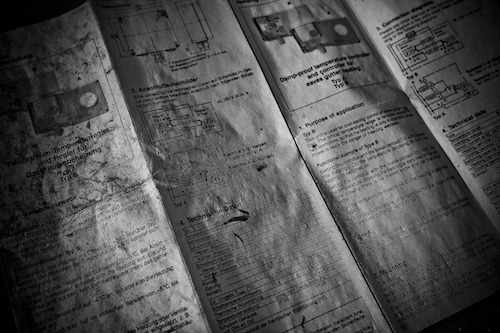 Have you been blessed with a knack for words but also enjoy computer science? If so, then consider earning an online technical writing degree. You’ll enhance your writing abilities and learn how to translate complex information into organized, readable manuals for those who are not in the technology field.
Have you been blessed with a knack for words but also enjoy computer science? If so, then consider earning an online technical writing degree. You’ll enhance your writing abilities and learn how to translate complex information into organized, readable manuals for those who are not in the technology field.
Technical writers work in any industry that requires the use of technology—which is basically everywhere! They perform an important role in a society that is becoming increasingly dependent on technology which is constantly being transformed for use in marketing, communication, and operations. While this career field is not expected to grow as fast as some other computer science careers, technical writing is a great path for individuals who are able to understand complex information and want to use their marketing and communication skills to help other professionals understand as well.
THE CAREER PATH
Technical writers are critical teammembers in practically every industry within society, which means plenty of opportunities should open up as the field continues to grow by approximately 10%, according to the Bureau of Labor Statistics. Because there is hardly any arena that would not benefit from a technical writer, it is possible to match a career in technical writing with other interests, such as environmental sciences, education, even art.
The responsibilities of a techincal writer include:
- Determining the needs of clients and their technology users
- Creating paper-based and digital operating instructions
- Working with technical staff to make products easier to use
- Organizing and writing supportive content for projects and products
- Selecting appropriate platforms for messaging audiences (such as manuals and videos)
- Gathering user feedback and improving content
Not only is technical writing a diverse, thriving industry, but it is also quite the rewarding career. On average, technical writers earn $70,240 each year, with room for negotiation according to experience.
WHO IS THE IDEAL CANDIDATE?
This particular technical field requires a collection of other strengths that are somewhat unrelated to the computer sciences in order to thrive.
Technical writers must be strong communicators, to relay complex technical information to professionals from alternative backgrounds. To communicate to a variety of departments, imagination and teamwork are essential.
To be an excellent technical writer, you must first master and then break down information into clear, concise instructions, steps and diagrams. Composing instruction manuals for complex electronic products could be a regular part of work. You might also author corporate training manuals that help teach technicians and clerks how to construct, use and troubleshoot computer information and data systems. Or you could specialize in procedural manuals and user’s guides.
Technical writing can also involve working with more than just written platforms—you may utilize mediums such as videos and graphics to disseminate information through an audience or organization.
WHAT SHOULD I LOOK FOR?
There are a variety of bachelor’s degrees that could lay the foundation for this career path, such communication, computer sciences, and writing. If you already have a bachelor’s degree—particularly in engineering, science or math—you could start a successful career in technical writing by earning a master’s. An advanced degree will give you the writing skills necessary for this position and build off your base of current knowledge. If you’re don’t have a bachelor’s degree in a related field, consider earning either a bachelor’s or certificate in technical writing.
A technical writing degree will require you to use both sides of your brain. You’ll have to be creative and come up with ways to clearly present highly technical information. But you first need to actually understand what you’re supposed to explain. Your classes will reflect this dichotomy.
Typical “right-side brain” core courses will include online writing, technical editing and professional writing. These classes may give you a broad enough base that you could write for other fields—medical, science, business—and not just computer science. “Left-side brain” courses will include statistics, calculus, programming and biology. You may be able to focus on a specific topic—software, web work, health care—if your program offers it.
Expect to see the following classes in your online technical writing degree:
- Technical Editing
- Digital Writing
- Computer Programming
- Design and Documentation
- Media Communications
COST
An online certificate in professional technical writing offers many of the same courses without the same financial and time requirements as an online bachelor’s degree and generally costs 1/3 the price of a bachelor’s. Depending on your background, however, an online bachelor’s degree in technical writing, may provide more credibility on your resume.
Our rankings reveal that the average online computer science bachelor’s degree costs just under $50,000. However, the most affordable programs come in at ten or even twenty thousand dollars less! When researching different options, make sure to consider programs that incorporate projects or internships to ensure that you maximize your time and money.






